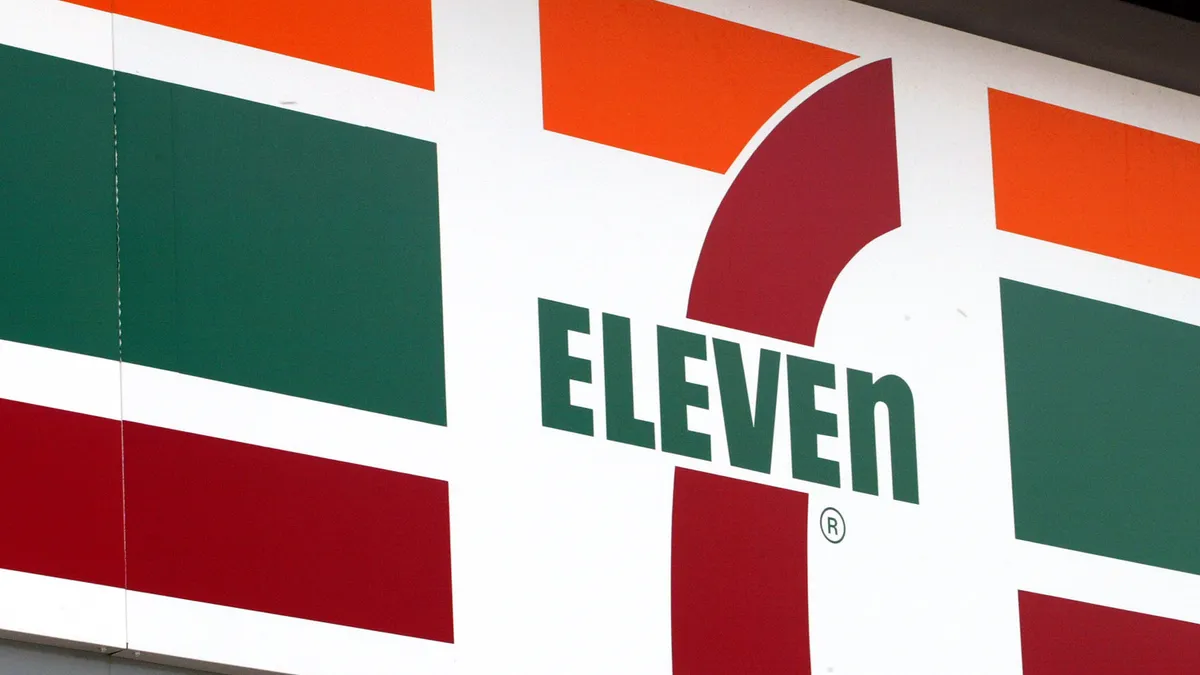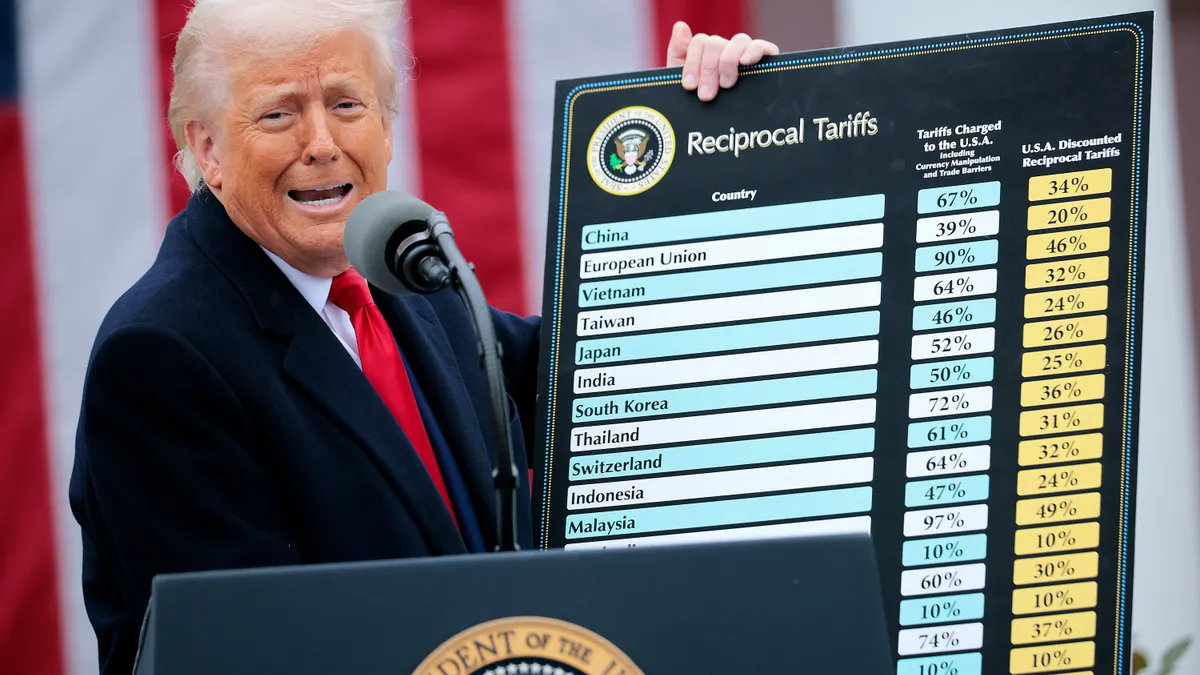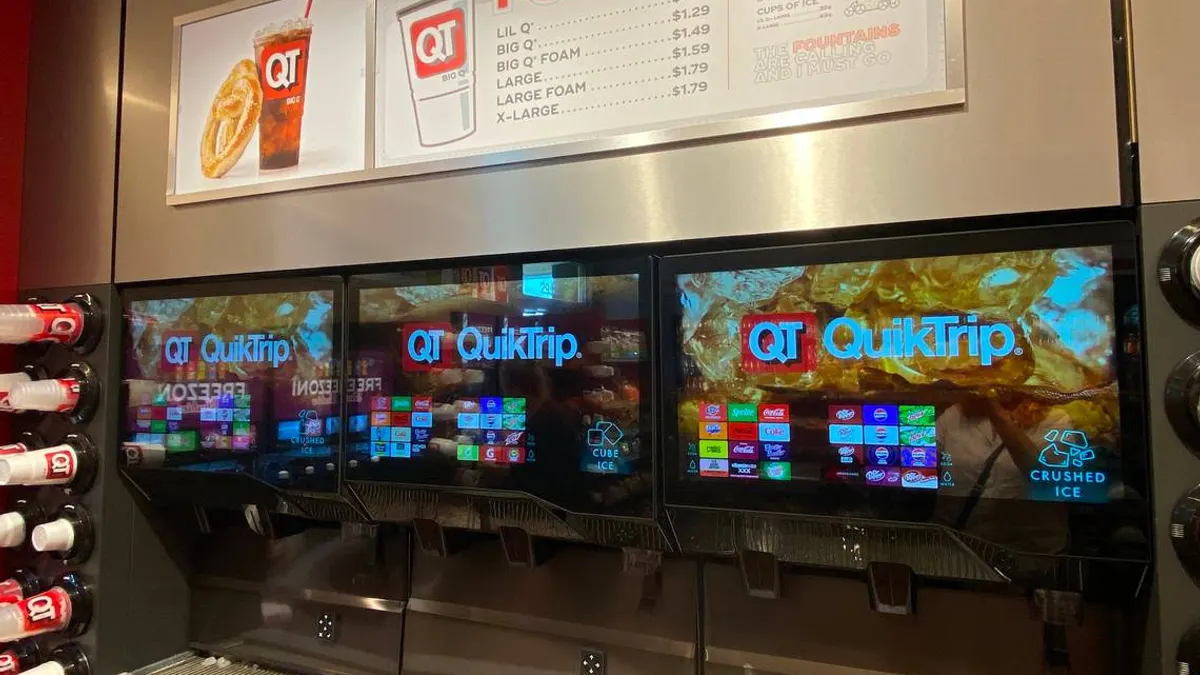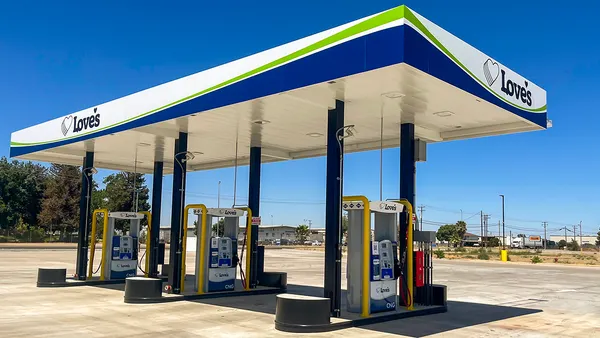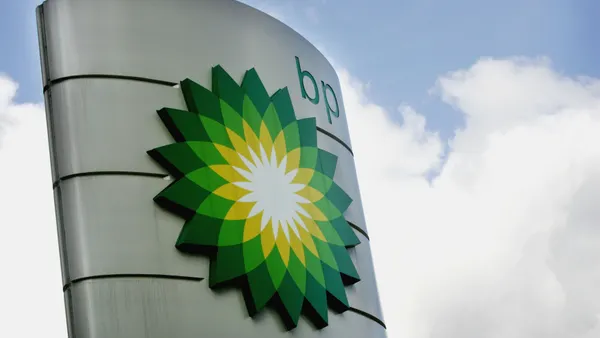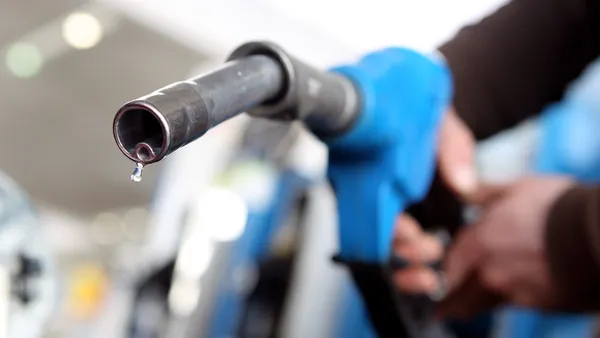Dive Brief:
- 7-Eleven has signed a 20-year clean energy agreement with a Detroit-based energy company that will let the c-store chain achieve 100% renewable energy for its 160 southeast Michigan locations, according to a Wednesday announcement.
- The agreement — which will commence in 2025 — will help 7-Eleven avoid more than 15,000 tons of carbon dioxide emissions per year and help strengthen Michigan’s clean-energy infrastructure, according to the announcement.
- 7-Eleven’s latest clean-energy push highlights the company’s broader mission to reduce carbon emissions and purchase local renewable energy to support its operations.
Dive Insight:
The agreement — made between 7-Eleven and diversified energy company DTE Energy — enrolls 7-Eleven into DTE’s MIGreenPower renewable energy program, which enables residential and business customers in DTE’s Electric division to attribute more of their electricity to local wind and solar.
By joining the program, 7-Eleven will help “bring new Michigan-based wind and solar resources online,” Brian Calka, VP of renewable sales and project development for DTE Energy, said in a statement.
This isn’t 7-Eleven’s first foray into renewable energy. The company currently has a goal to cut carbon dioxide emissions from its stores in half by 2030, and had already hit 27% by 2021. 7-Eleven also has a 32,000-megawatt hour clean energy commitment, which would be the equivalent to taking nearly 3,000 gas-powered cars off the road each year, according to the report. The company is also in the process of building out 500 electric vehicle (EV) charging stations at 250 stores nationwide by the end of 2022.
Besides 7-Eleven, renewable energy is making waves with other c-store chains, and it goes beyond the EV-charging arms race shaping up among retailers.
In late September, Amazon and natural gas provider Clean Energy Fuels opened a renewable natural gas (RNG) fueling site in Groveport, Ohio, as part of an agreement to debut 19 of them in North America. These stations, which offer fuel made from organic waste to Amazon’s fleet and others, aim to cut greenhouse gas emissions from the trucking sector. Just last week, BP announced it intends to acquire Archaea Energy, a major producer of biogas — renewable natural gas from waste — in a $4.1 billion deal slated to close this year.



